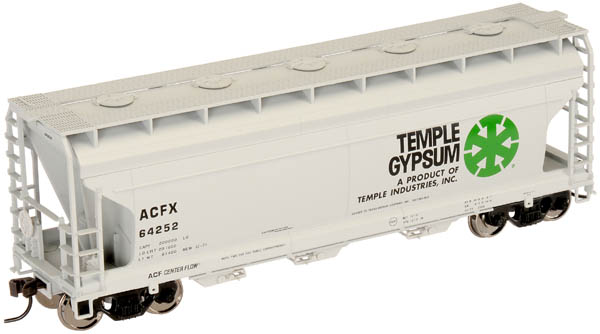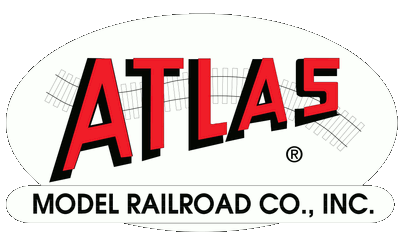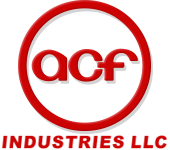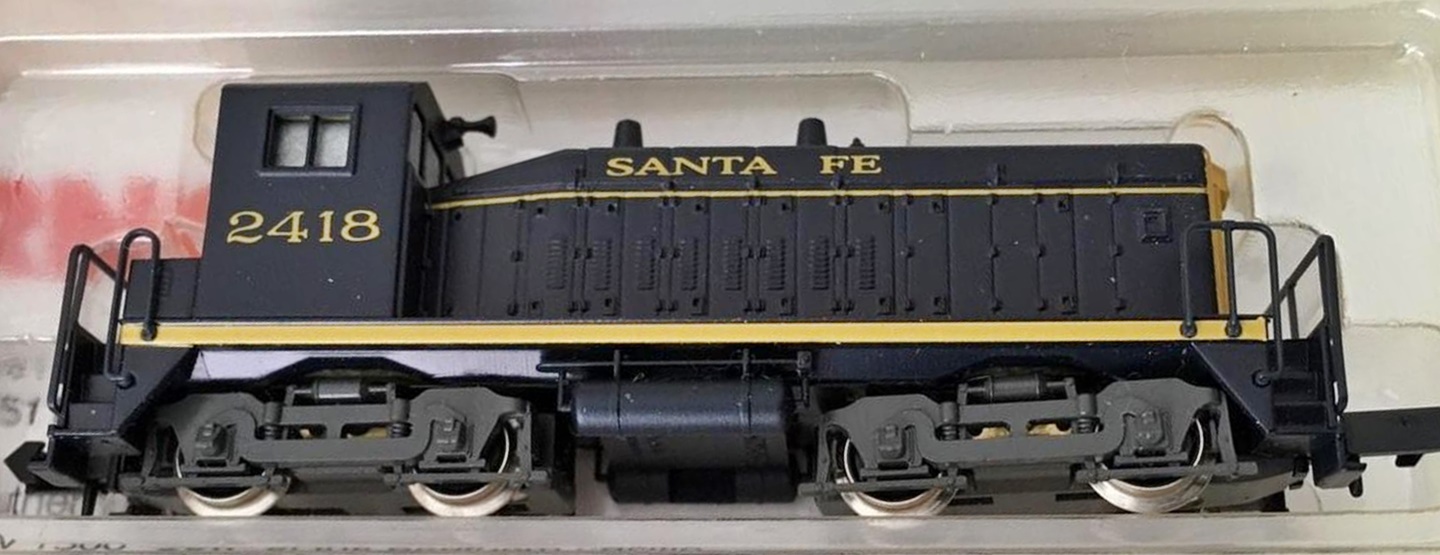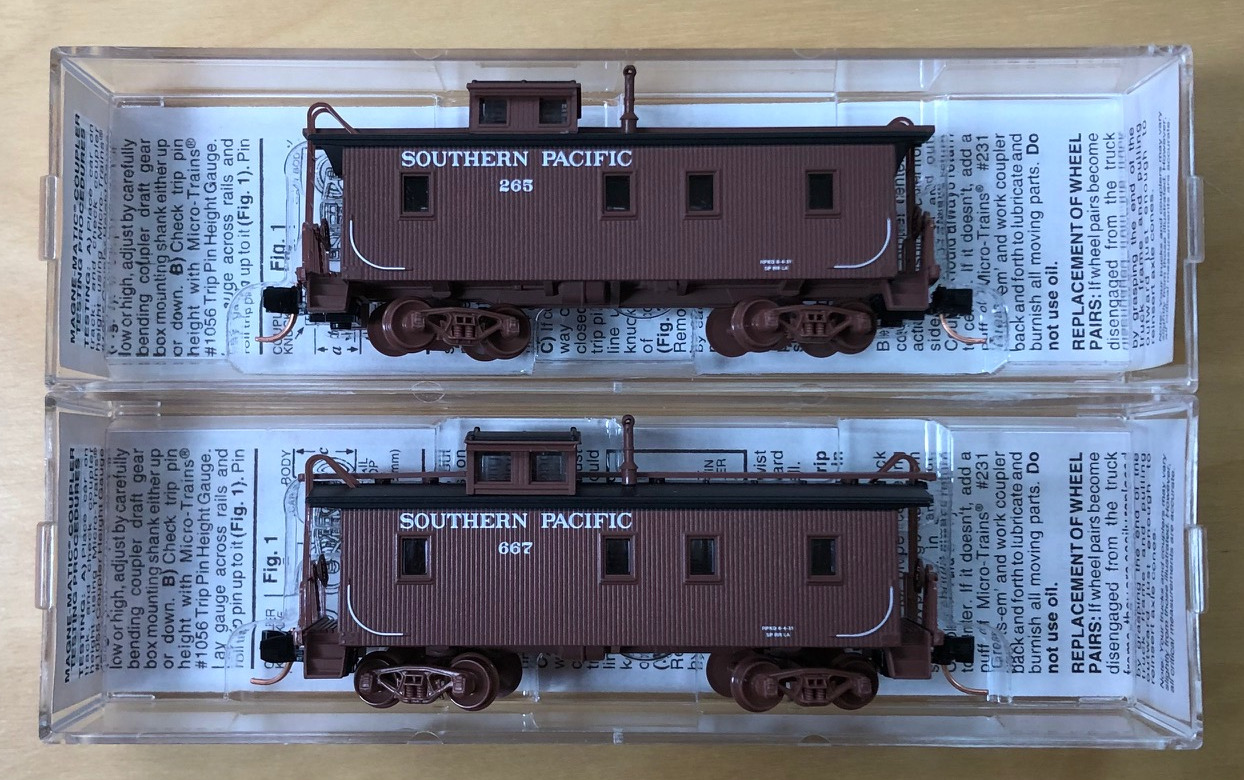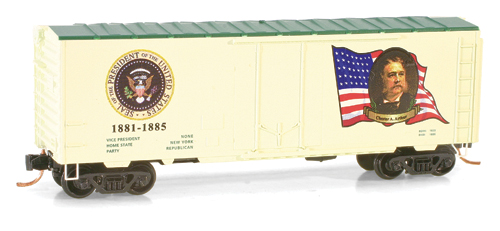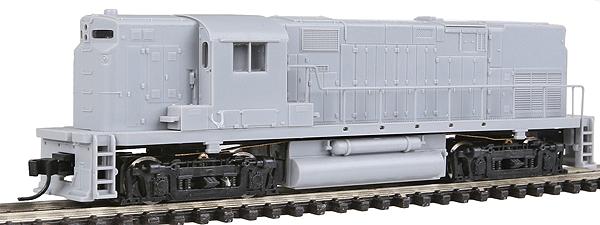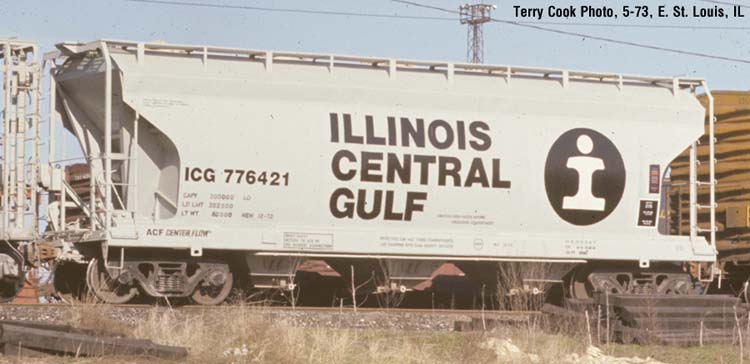Body Style Information: True scale dimensions with accurate details.
Weighted, detailed underframes.
Equipped with AccuMate® Knuckle Couplers.
Trucks equipped with free-rolling metal wheels.
Accurate painting and lettering.
Prototype Information: Covered hoppers such as these are used to transport any dry bulk material that you don't want exposed to the elements. Salt, fertilizer, some dry chemicals, and bauxite are common loads for this car. Over 200 were built from 1967 to 1972. The three-compartment ACF® 3560 Center Flow Covered Hopper was designed for the transport of high-density dry bulk ladings of 50 – 60 pounds per cubic foot. The 100-ton car was designed to fit into the smallest modern plate diagram dimensions, Plate B.
Road/Company Information: Temple Industries began in 1893 when Thomas L. L. Temple purchased 7,000 acres of timberland in southern Angelina County from John C. Diboll of Louisiana. Southern Pine Lumber Company of Texarkana, Arkansas, had been organized in 1891 as a partnership between Temple, C. M. Putnam, and Ben Whitaker, to sell lumber wholesale. The company folded the same year and was reorganized in 1893. Temple soon became the sole owner. A millsite was constructed at the company town, Diboll, midway between Houston and Shreveport on the Houston, East and West Texas Railway, and production of pine and hardwood lumber began in June 1894. Sixty thousand board feet of lumber was cut per day, and 600 men were employed. The firm was organized as a capital-stock enterprise in 1893. Timber resources came from a strip of land fifty-five miles long and five miles wide along the Neches River in Angelina, Anderson, Cherokee, Houston, and Trinity counties. Temple later purchased other firms and founded the Temple Lumber Company at Pineland. When he died in 1935 his son, Arthur Temple, Sr., became company president. Arthur Temple, Jr., assumed control in 1948, and the company rapidly expanded into fiberboard sheathing, particleboard, and plywood manufacture.
In 1956 Southern Pine merged its Pineland operations into the parent company, which in 1964 was renamed Temple Industries. It built or acquired plants in Arkansas, Alabama, and Georgia in the 1970s to expand particleboard and gypsum wallboard manufacture. In 1973 Temple Industries was acquired by Time, Incorporated, and merged with Time's Eastex pulp and paperboard subsidiary at Evadale, Texas, to form Temple-Eastex. The new company owned more than a million acres of forest in Texas and employed nearly 5,000 people nationwide. In 1984 Time spun off Temple-Eastex and a Time subsidiary, Inland Container Corporation, to form Temple-Inland, based in Diboll, which reported $1 billion in sales in its first year and became one of the nation's primary producers of corrugated boxes, as well as building products, pulp, and paperboard. Subsidiary companies are engaged in mortgage banking, insurance, and real estate development.
Registered Address 101 NORTH FIRST ST DIBOLL, TX 759411932 United States
In 1956 Southern Pine merged its Pineland operations into the parent company, which in 1964 was renamed Temple Industries. It built or acquired plants in Arkansas, Alabama, and Georgia in the 1970s to expand particleboard and gypsum wallboard manufacture. In 1973 Temple Industries was acquired by Time, Incorporated, and merged with Time's Eastex pulp and paperboard subsidiary at Evadale, Texas, to form Temple-Eastex. The new company owned more than a million acres of forest in Texas and employed nearly 5,000 people nationwide. In 1984 Time spun off Temple-Eastex and a Time subsidiary, Inland Container Corporation, to form Temple-Inland, based in Diboll, which reported $1 billion in sales in its first year and became one of the nation's primary producers of corrugated boxes, as well as building products, pulp, and paperboard. Subsidiary companies are engaged in mortgage banking, insurance, and real estate development.
Registered Address 101 NORTH FIRST ST DIBOLL, TX 759411932 United States
Brand/Importer Information: In 1924 Stephan Schaffan, Sr. founded the Atlas Tool Company in Newark, New Jersey. In 1933 his son, Stephan Schaffan, Jr., came to work for his father at the age of sixteen. Steve Jr. built model airplanes as a hobby and frequented a local hobby shop. Being an enterprising young man, he would often ask the owner if there was anything he could do to earn some extra spending money. Tired of listening to his requests, the hobby-store owner threw some model railroad track parts his way and said, "Here, see if you can improve on this".
Atlas has made a ton of wonderful products throughout the years and we often get questions one whether we have run a certain road name on a particular model. It should be noted that Atlas locomotives and rolling stock are greatly appreciated for their superior operating and running characteristics. Atlas products are also well known for their outstanding collectability not only due to their superior prototypical workmanship, details and decoration, but because there are relatively so few of them made. Each and every production run has been carefully built to market demand, meaning almost every piece in any given run is sold out by Atlas on arrival or shortly thereafter, thus creating a built in collectors market.
Atlas has made a ton of wonderful products throughout the years and we often get questions one whether we have run a certain road name on a particular model. It should be noted that Atlas locomotives and rolling stock are greatly appreciated for their superior operating and running characteristics. Atlas products are also well known for their outstanding collectability not only due to their superior prototypical workmanship, details and decoration, but because there are relatively so few of them made. Each and every production run has been carefully built to market demand, meaning almost every piece in any given run is sold out by Atlas on arrival or shortly thereafter, thus creating a built in collectors market.
Item created by: devsummers428 on 2020-01-15 13:19:52. Last edited by devsummers428 on 2020-05-07 00:00:00
If you see errors or missing data in this entry, please feel free to log in and edit it. Anyone with a Gmail account can log in instantly.
If you see errors or missing data in this entry, please feel free to log in and edit it. Anyone with a Gmail account can log in instantly.


